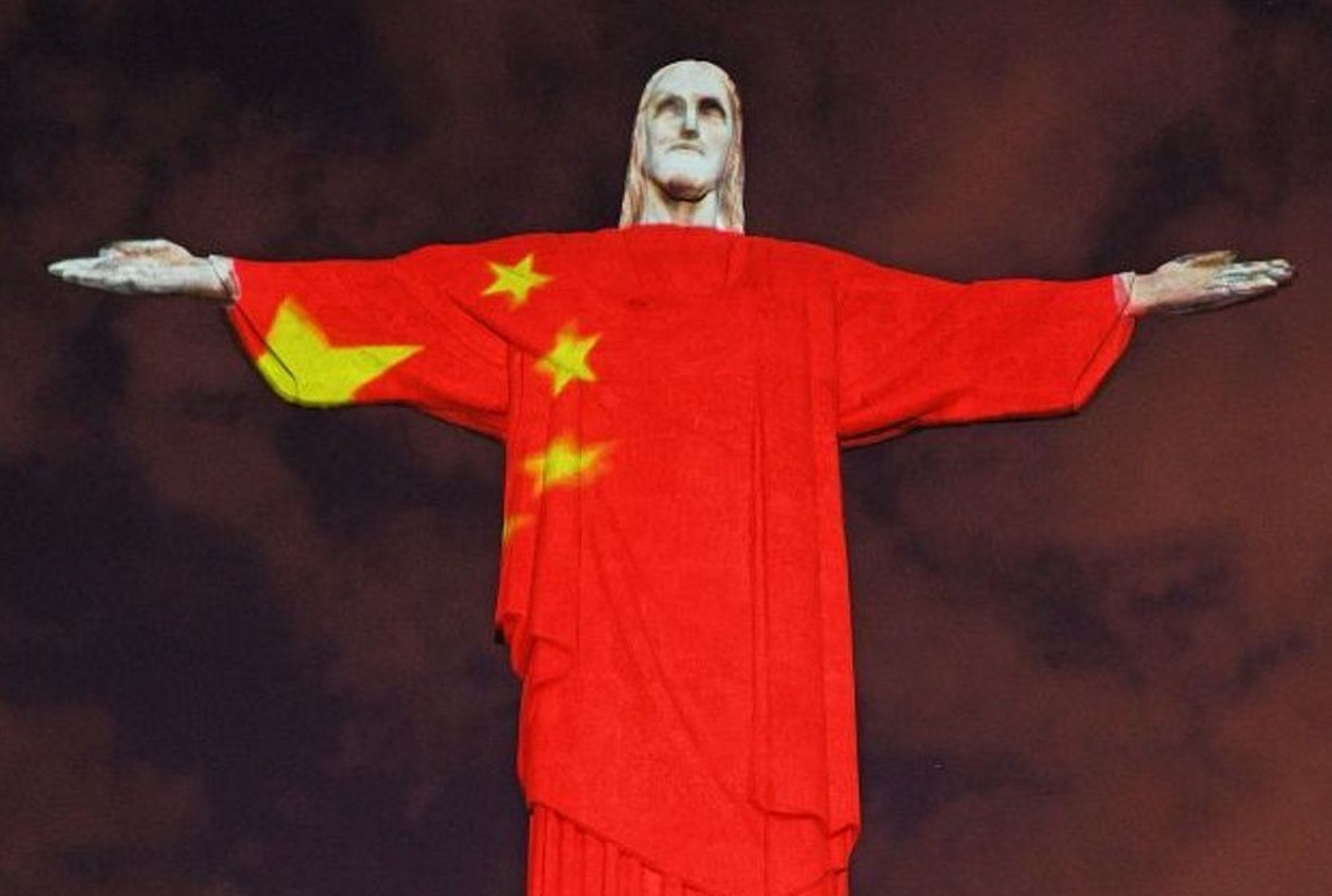The Brazilian community of Joinville should have presented German businesses with something of a home team advantage. After all, the small city in the southern state of Santa Catarina has been an important center of German immigration since the mid-1800s; many of the 600,000 inhabitants have some sort of German ancestry and therefore, optimistic German managers might imagine that some form of loyalty for their historic homeland might translate into lucrative deals.
But such sentiment was not obvious at a recent plastics trade fair that Joinville hosted.
“I heard from one of our members in the plastics engineering sector that a Chinese competitor offered their machinery without asking for a deposit and with payment in 45 monthly installments at a zero-interest rate,” said Thomas Ulbrich, the head of the São Paulo office of Germany’s VDMA, an association which represents around 3,500 German companies working in mechanical engineering. “Our companies just can’t compete with that kind of financing.”
As the VDMA’s representative in Brazil, Ulbrich has noticed the growing influence that Chinese companies are having in his sector. Businesses from Germany and other European nations are having trouble keeping up with Chinese firms.
“The Chinese banks, which have several branches in São Paulo alone, are there mainly to finance projects with Chinese companies,” he said.
By the end of November, Beijing will have added another jewel to the crown that is its successful Latin American strategy. That month, it is expected to sign a bilateral free trade agreement with Ecuador, coinciding with the annual China-Latin America-Caribbean Business Summit in the Ecuadorian port city of Guayaquil.
Between 2000 and 2020, China increased its investments in the region 26-fold. It is now the most important or second-most important trading partner in many Latin American countries, replacing the US or EU.
A generation of Chinese experts in the region
EU diplomat Claudia Gintersdorfer has similar stories to tell about how China has managed to extend its influence throughout the continent over the past two decades.
Currently the head of Americas division at the European External Action Service — the EU’s diplomatic service — she lived in Uruguay and Brazil for four years each and has been doing her EU job for the past three years.
“I was always surprised how well the Chinese ambassadors [in Latin America] spoke Spanish and how well they understood the local mentality. A whole generation of experts was put into action,” she said. “In a way, China has taken our place. Also because the [Chinese] head of state Xi Jinping took the time to phone every Caribbean island himself.”
Part of the Chinese leader’s reason for doing this was to convince Latin American countries of the benefits of China’s international infrastructure and influence project known as the Belt and Road Initiative.
The persuasion worked: 21 out of 33 countries in the region are participating in the initiative, often referred to as a “new Silk Road.”
EU plans charm offensive
With China exerting ever more influence over the world’s most important trade routes, the EU has decided it is time to try and counter the developments.
Europeans want to go on the offensive, both diplomatically and economically. From 2021 to 2027, the EU will be making around € 3.4 billion (US$ 3.38 billion) available to Latin American countries for sustainable and inclusive development. This should gain momentum after a meeting in Buenos Aires in October between foreign ministers from the region and the EU.
However, the bloc has particularly high hopes for the second half of 2023, when Spain, which has stronger relationships with Latin American nations than many other EU member states, will be holding the rotating presidency of the Council of the European Union.
“We take each other for granted,” Gintersdorfer suggested, referring to the EU and Latin America. That means that sometimes the partners are not working on the relationship as much as they should be, she said. “But we [the EU] are a partner to be taken seriously, and we’re also a good third alternative. With us, the region doesn’t have to choose between the US and China,” she argued.
Promoting fair, sustainable development
With its investments, Europe wants to help countries in the region recover from the pandemic while simultaneously promoting environmental projects. It also wants to encourage the digital transition in Latin America, for instance through the further development of an underwater fiber-optic communications cable connecting Portugal and Brazil, which was successfully launched in 2021.
“The Baltic states are at the forefront of the digital transformation,” Gintersdorfer said. “This time, countries other than Spain, Portugal and Germany should also get involved.”
It’s all about winning back Latin America’s trust, which suffered during the COVID-19 pandemic when countries there had to wait for a long time to get deliveries of EU-made vaccine.
This was partially because the COVAX initiative, with its aim of getting vaccines around the world in a just and transparent way, didn’t really work the way EU ministers in Brussels had hoped it would. Instead, China and Russia managed to deliver vaccines faster.
Weakened trust is also why EU diplomat Gintersdorfer had to make a significant effort to convince Latin American nations to vote with the EU in condemning the Russian invasion of Ukraine at the United Nation’s General Assembly in March.
Happily for Brussels, most of them did vote with the EU. Only Bolivia, El Salvador, Nicaragua and Cuba abstained, and Venezuela did not vote as it is still suspended from the UN for non-payment of dues.
Mercosur trade deal a ‘political signal’
The EU’s current goal is to push back against the influence of Russia and China in Latin America while at the same time significantly improving political and business relationships.
Possibly the best proof of this new attitude is the potential for finalizing a free trade deal with the Mercosur states — a customs union covering Argentina, Brazil, Paraguay and Uruguay — after 20 years of on and off negotiations.
The EU-Mercosur deal could be one of the biggest trade deals in the world, in terms of populations impacted, but there are a number of obstacles that still need to be overcome. In particular, there has been debate in the EU over the effect it will have on the environment in countries like Brazil.
Brazil holds elections in October, and the government there may change significantly, should the present right-wing, conservative president, Jair Bolsonaro, be replaced by former President Luiz Inácio Lula da Silva, a left-wing politician who presents himself as a better partner for the EU.
With a change of government in Brazil, the EU-Mercosur trade deal becomes more likely, Gintersdorfer argued.
“We have had a constellation in Latin America that made [the deal] possible, but we Europeans had issues,” she continued. “Many in the EU said that because Bolsonaro is burning the rainforest down, we can’t sign any deals with him. But such a treaty would not just be about trade, it would also be an important political signal.”
DW













